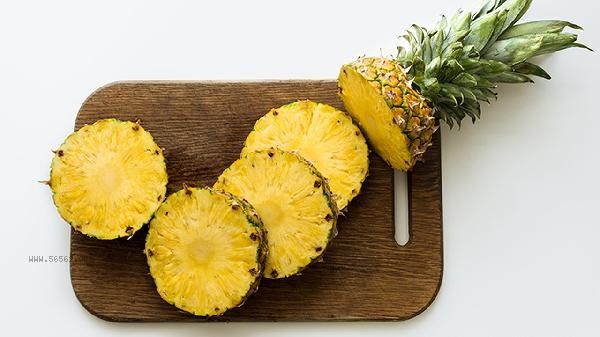Pineapple that has changed color inside is generally not recommended for consumption. The discoloration of pineapple flesh may be caused by oxidation, frostbite, or spoilage, and consuming spoiled pineapples may cause gastrointestinal discomfort.

If the pineapple is cut open and left for too long, the polyphenolic substances in the flesh will undergo oxidation reactions when exposed to air, resulting in a darker color. If there is no odor or texture change in this oxidized pineapple, it can still be consumed in the short term, but its taste and nutritional value have significantly decreased. If the pineapple flesh presents brown or black patches, accompanied by abnormal phenomena such as stickiness and sour odor, it usually indicates that the proliferation of microorganisms has led to spoilage and deterioration. Eating spoiled pineapple by mistake may irritate the gastrointestinal mucosa and cause symptoms such as abdominal pain and diarrhea. In some cases, pineapple may suffer from frostbite due to low refrigeration temperatures, causing the flesh to appear semi transparent and oozing juice. Although it is non-toxic, the taste is extremely poor. If the storage environment of pineapple is humid or the skin is damaged, mold may invade the interior through the wound and cause mold growth. The moldy area will produce toxins that spread to the surrounding flesh, and even if the discolored part is removed, there is still a safety hazard. When purchasing, choose fresh pineapple with golden skin and emerald green leaves. Cut it open and consume it as soon as possible or store it in a sealed refrigerator for no more than two days. When storing pineapples in daily life, they can be cut into chunks and soaked in light salt water to slow down oxidation, but should not exceed 6 hours. Pay attention to the color and odor of the fruit pulp before consumption, and discard any abnormalities promptly. It is recommended to wrap the unfinished pineapple with plastic wrap and refrigerate it in the refrigerator to avoid contact with other strongly scented foods. Elderly people, children, and those with weak digestive function need to be more cautious. If they experience discomfort symptoms, they should immediately stop eating and seek medical attention.











Comments (0)
Leave a Comment
No comments yet
Be the first to share your thoughts!